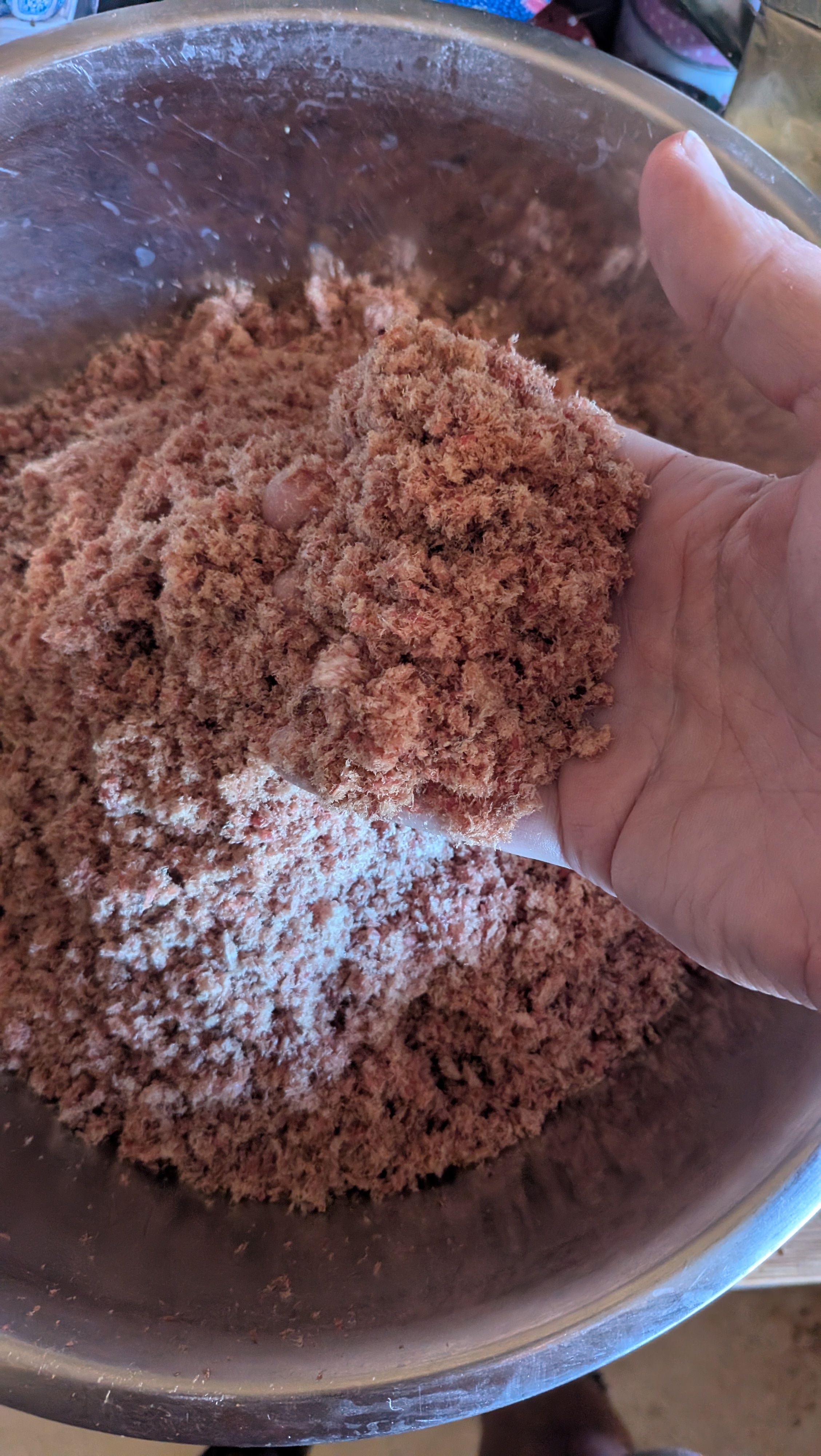TLDR : Weak Science, Low Relationship, Healthy User Confounders - Nothing burger.
Results: The dementia analysis included 133,771 participants (65.4% female) with a mean baseline age of 48.9 years, the objective cognitive function analysis included 17,458 female participants with a mean baseline age of 74.3 years, and SCD analysis included 43,966 participants (77.1% female) with a mean baseline age of 77.9 years. Participants with processed red meat intake ≥0.25 serving per day, compared with <0.10 serving per day, had a 13% higher risk of dementia (hazard ratio [HR] 1.13; 95% CI 1.08-1.19; plinearity < 0.001) and a 14% higher risk of SCD (relative risk [RR] 1.14; 95% CI 1.04-1.25; plinearity = 0.004). Higher processed red meat intake was associated with accelerated aging in global cognition (1.61 years per 1 serving per day increment [95% CI 0.20-3.03]) and in verbal memory (1.69 years per 1 serving per day increment [95% CI 0.13-3.25], both plinearity = 0.03). Unprocessed red meat intake of ≥1.00 serving per day, compared with <0.50 serving per day, was associated with a 16% higher risk of SCD (RR 1.16; 95% CI 1.03-1.30; plinearity = 0.04). Replacing 1 serving per day of nuts and legumes for processed red meat was associated with a 19% lower risk of dementia (HR 0.81, 95% CI 0.75-0.86), 1.37 fewer years of cognitive aging (95% CI -2.49 to -0.25), and a 21% lower risk of SCD (RR 0.79, 95% CI 0.68-0.92).
Discussion: Higher intake of red meat, particularly processed red meat, was associated with a higher risk of developing dementia and worse cognition. Reducing red meat consumption could be included in dietary guidelines to promote cognitive health. Further research is needed to assess the generalizability of these findings to populations with diverse ethnic backgrounds.
https://pubmed.ncbi.nlm.nih.gov/39813632/
https://doi.org/10.1212/WNL.0000000000210286
Sounds really bad! But, Association is not causation, "could" also means "cloud not"
(I can't find the full paper, if you know a link please share it, I want to read the full paper)
Prospective cohort study, epidemiology, another slice of the Nurses Health Study, and the HPFS. Observational Research, cannot prove causation. The Hazard ratio is 1.13, that's nothing. You have to be at least 2 to even justify further research (unless there is an agenda). As a reference the hazard ratio for smoking was 30!
As always in observational studies, healthy patient confounders need to be considered. The person ignoring current advice eating pizza, fast food, etc is considered a "meat eater", but the person following the guidelines is more or less vegetarian (no processed meat, no red meat at least, not smoking, not drinking) at this point. The big difference between these groups? SUGAR AND CARBS.
Even with this massive confounder the Hazard Ratio was only 1.13 (1.0 means NO Correlation at all)
From this tiny data point, the news is flooded with "Red Meat Causes Dementia"
The research director at Harvard has a well established PBF bias, as well as funding from industry. This paper is just one is a series (there will be another for the next news cycle with the same hazard ratios, saying the same thing). At BEST this type of low probability correlation should be used to setup a real study, a RCT... not to set policy or demonize red meat.
Recall our previous discussion of how you slice the data looking for relationships is just as important as the results with a large body of observational data https://lemmy.dubvee.org/post/2623649









